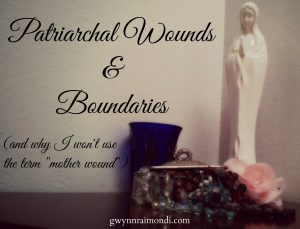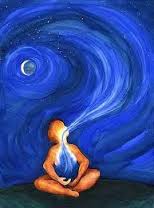When we talk about consent, we also need to talk about boundaries. These two things go hand-in-hand. When we talk about our consent being disregarded we are also talking about our boundaries being crossed (and disregarded). When we give or deny our consent we are lowering or raising our boundaries with another.
And like consent, our boundaries can feel complex. However, I would argue that our boundaries are actually something that is very clear. The issue I believe that comes in is two fold :: 1. that we often assume our boundaries are static when they are in fact fluid and 2. that our disconnection from our body leads to a disconnection from our boundaries and knowing and understanding our boundaries.
When I say our boundaries are fluid, what I mean is that they are movable. For example one day or moment I may feel extra physical and want to be close to my husband. Then on another day or in another moment I may not want to close at all and want to be left alone in solitude. This boundary of physical closeness ebbs and flows based on any number of circumstances or reasons. This doesn’t mean I love my husband less on the days I don’t want to be close, it simply means I don’t want to be touched.
This fluidity also applies to our emotional boundaries. Have you ever had, what Brene Brown calls, a “vulnerability hangover”? That feeling when we have shared too much of ourselves with perhaps the wrong, or at least not the right, people? That is a crossing of our own emotional boundaries. Or when a friend or family member gives us advice and one day we can hear it and know it’s coming from a good space and on another day it is simply too much and we want them to STFU? That is another example of how our boundaries can shift. Or, there are days when I want to sit down and tell my husband All The Things and there are others that I don’t. Days when I want to talk about past hurts or traumas and days that I don’t. These are all examples of how our emotional boundaries can ebb and flow.
The other piece of our boundary work, is body connection. The reality is that we have a very physical response when our boundaries are being encroached, whether physically or emotionally or psychologically. Our body responds in any number of ways from a sense of agitation to an elevated heart rate to shortness of breath to headaches to our stomach tying itself in knots to many other varied responses. These responses become more intense the more we ignore them, as it seems our body is very clear on wanting to be heard and to keep us safe.
Often our response to these sensations is to ignore them, because they may not make conscious or logical sense in the moment. And truly, because we are trained to ignore them, to not listen to our body, or our intuition or our knowing.
And.
When we start to connect to our body, to truly feel her, which includes a lot of uncomfortable sensations as well as pleasurable ones, and when we acknowledge the sensations of our boundaries being crossed and honor those sensations by stepping away or demanding that our boundaries be respected, then these sensations become less intense.
Embodiment, I deeply believe, is a key to our own liberation. It is a key in understanding our own inner workings, which includes knowing our often fluid boundaries and the complexities of our consent.
Embodiment, like knowing and honoring our boundaries, like knowing and honoring our consent, is truly an act of rebellion. We live in a culture that encourages us to be disconnected from our physical self and teaches us to mute all pain by any and all means possible.
This issue of course being, that when we mute the pain, we mute all the other sensations too, including our “spidey sense” or those sensations we get when our boundaries are slowly (or quickly!) being disregarded.
This does not mean that being present in our body is all sunshine and roses. Many of us live with chronic pain. Many of us have auto-immune issues that also cause physical pain. Many of us get migraines or menstrual cramps or both.
And.
The truth is, even with the pain, I would rather be present in my body, to hear her whispers that are trying to keep me safe, than to continue living disassociated and disconnected.
I would rather be aware of my boundaries and have the opportunity to defend them (and my Self) than allow others to continue to trample them, and me.
I talk even more about boundaries in this 20-minute video below. I hope you enjoy it.
This essay and video series is in part to share with you the topics we’ll be unearthing, examining, dislodging and embracing in the six month circle Body of Consent. We begin on March 1 (the video says February, we changed the start date to March). If you are interested, you can learn more and register right over here. xoxo
Or if you enjoyed this and would like to read more of my essays, you can subscribe for my weekly love letter right over here.
 Boundaries and our ancestors and patriarchal wounds. These things are so intertwined.
Boundaries and our ancestors and patriarchal wounds. These things are so intertwined. I invite you to step into your anger. To open your throat to your roars.
I invite you to step into your anger. To open your throat to your roars.